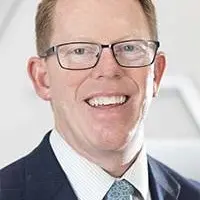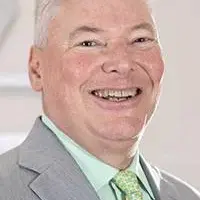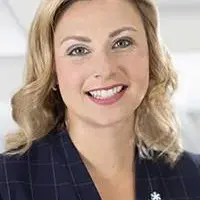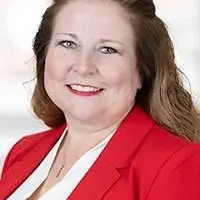The demand is great that the time in which they attend you is very short. I do not like the way they work but that does not mean they are bad.
About Conway Regional Health System
The Conway Regional Health System in Conway, Arkansas provides health care services for the community. Individuals can access substance use disorder treatment services at various locations operated by the organization.
Continuum of Care for Adults
Focusing on a multidisciplinary approach, they offer both inpatient and outpatient programs. Clients who are at the beginning stages of treatment can receive detox services to undergo a safe withdrawal process.
When clients are ready to move forward with residential treatment, counselors can employ cognitive behavioral therapy and other evidence based practices.
Clients will learn the cause of their addiction and develop relapse prevention tools. I like that they provide education for families and caregivers, as well as assistance with post treatment placement.
Gender Specific Treatment
The facility has several facilities where clients can access gender specific treatment. Clients may find it easier to discuss their issues with addiction with members of the same gender. Counselors will also be able to tailor treatment specific to your needs.
Former clients express satisfaction with the overall hospital experience, saying that they’re willing to recommend services to others. They highlight the good communication with the doctors and nurses involved in the program.
Conway has an abundance of parks and green spaces to supplement your recovery journey. Toad Suck Park features walking trails, picnic areas, and scenic views, making it the perfect spot to relax in nature in between treatment sessions. Conway Regional Health System is a little over a half hour away from Little Rock, Arkansas.
Latest Reviews
Rehab Score
Location
Other Forms of Payment
Medicare is a federal program that provides health insurance for those 65 and older. It also serves people under 65 with chronic and disabling health challenges. To use Medicare for addiction treatment you need to find a program that accepts Medicare and is in network with your plan. Out of pocket costs and preauthorization requirements vary, so always check with your provider.
Addiction Treatments
Levels of Care
Residential treatment programs are those that offer housing and meals in addition to substance abuse treatment. Rehab facilities that offer residential treatment allow patients to focus solely on recovery, in an environment totally separate from their lives. Some rehab centers specialize in short-term residential treatment (a few days to a week or two), while others solely provide treatment on a long-term basis (several weeks to months). Some offer both, and tailor treatment to the patient's individual requirements.
Outpatient Programs (OP) are for those seeking mental rehab or drug rehab, but who also stay at home every night. The main difference between outpatient treatment (OP) and intensive outpatient treatment (IOP) lies in the amount of hours the patient spends at the facility. Most of the time an outpatient program is designed for someone who has completed an inpatient stay and is looking to continue their growth in recovery. Outpatient is not meant to be the starting point, it is commonly referred to as aftercare.
Treatments
Many of those suffering from addiction also suffer from mental or emotional illnesses like schizophrenia, bipolar disorder, depression, or anxiety disorders. Rehab and other substance abuse facilities treating those with a dual diagnosis or co-occurring disorder administer psychiatric treatment to address the person's mental health issue in addition to drug and alcohol rehabilitation.
Mental health rehabs focus on helping individuals recover from mental illnesses like bipolar disorder, clinical depression, anxiety disorders, schizophrenia, and more. Mental health professionals at these facilities are trained to understand and treat mental health issues, both in individual and group settings.
Clinical Services
Cognitive Behavioral Therapy (CBT) is a therapy modality that focuses on the relationship between one's thoughts, feelings, and behaviors. It is used to establish and allow for healthy responses to thoughts and feelings (instead of unhealthy responses, like using drugs or alcohol). CBT has been proven effective for recovering addicts of all kinds, and is used to strengthen a patient's own self-awareness and ability to self-regulate. CBT allows individuals to monitor their own emotional state, become more adept at communicating with others, and manage stress without needing to engage in substance abuse.
Experiential therapy is a form of therapy in which clients are encouraged to surface and work through subconscious issues by engaging in real-time experiences. Experiential therapy departs from traditional talk therapy by involving the body, and having clients engage in activities, movements, and physical and emotional expression. This can involve role-play or using props (which can include other people). Experiential therapy can help people process trauma, memories, and emotion quickly, deeply, and in a lasting fashion, leading to substantial and impactful healing.
Group therapy is any therapeutic work that happens in a group (not one-on-one). There are a number of different group therapy modalities, including support groups, experiential therapy, psycho-education, and more. Group therapy involves treatment as well as processing interaction between group members.
In individual therapy, a patient meets one-on-one with a trained psychologist or counselor. Therapy is a pivotal part of effective substance abuse treatment, as it often covers root causes of addiction, including challenges faced by the patient in their social, family, and work/school life.
Amenities
-
Private Setting
Staff & Accreditations
Staff

Matt Troup
President and Chief Executive Officer

Bill Pack
Chief Financial Officer

Rebekah Fincher
Chief Administrative Officer

Amanda Irby
Chief Nursing Officer

Wayne Cox
Board Chair
Accreditations

The Substance Abuse and Mental Health Services Administration (SAMHSA) is a branch of the U.S. Department of Health and Human Services. Established in 1992 by congress, SAMHSA's mission is to reduce the impact of substance abuse and mental illness on American's communities.
SAMHSA Listed: Yes
Contact Information
2302 College Avenue
Conway, AR 72034
